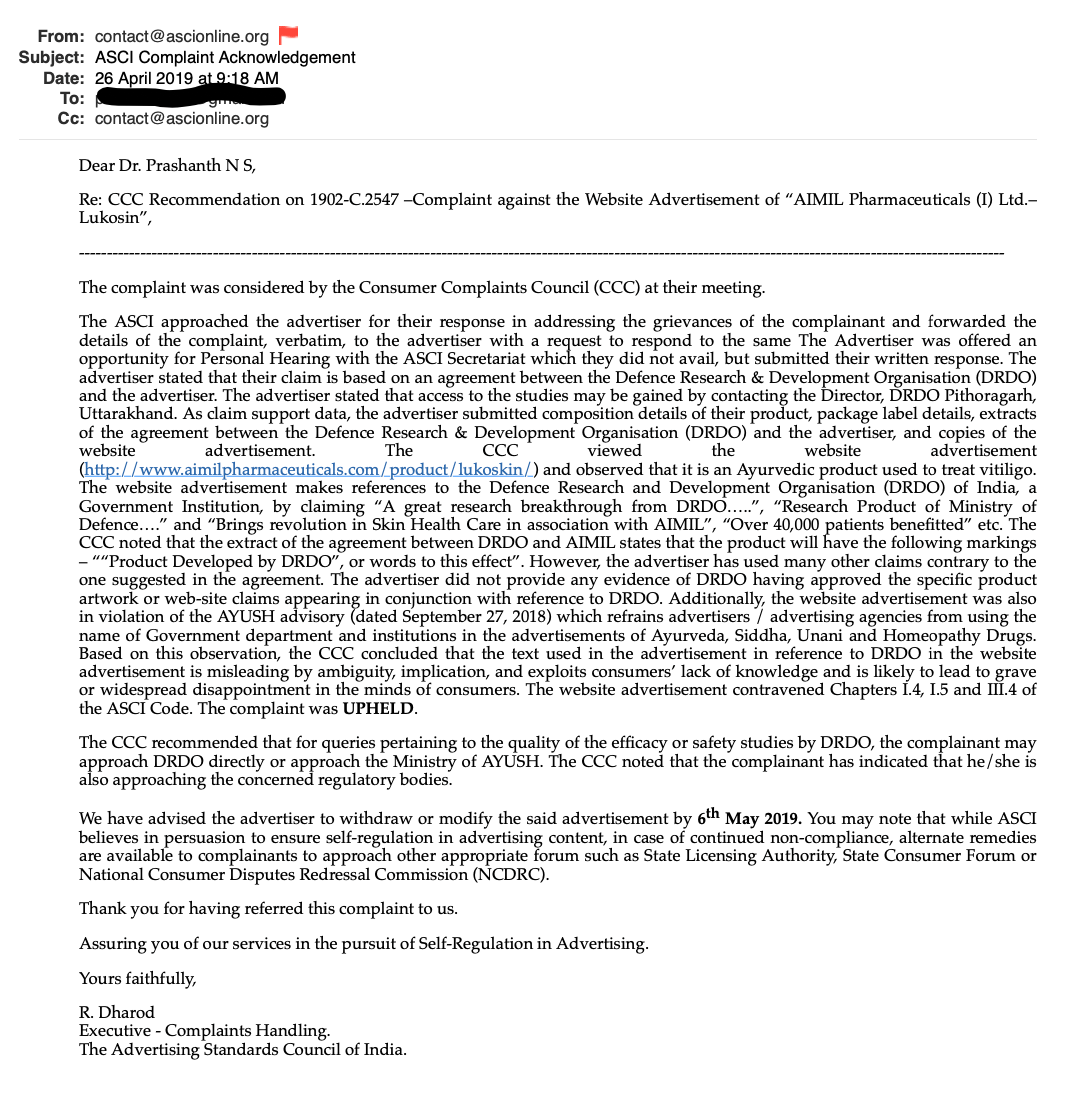I got drawn to the magical remedies of AIMIL Pharmaceuticals early last year and had tweeted about some of their products, two of them BGR34 and Lukosin caught my attention, not only because of the flaunting of DRDO’s logo on the website of this private pharmaceutical company (for Lukosin and a modest mention of the know how by CSIR on the former), but also because of the claims made about cure (not treatment) of Vitiligo.
Along with @BGR34Online that is marketed for #diabetes and this one below for #Vitiligo, @AimilPharma products are bordering on fraudulent advertising/mis-representation IMO; in the lack of proper trials, is it fair to make such claims? @DRDO_India @ICMRDELHI @MoHFW_INDIA https://t.co/s0Wn3u8nq7
— daktre (@prashanthns) February 19, 2018
Lack of (quality) trials
These products have not been rigorously tested to examine their safety and efficacy. Both safety and efficacy are of paramount importance when it comes to making public claims about a product having pharmaceutical action. Indeed, there is an entire Act governing “…control the advertisement of drugs in certain cases, to prohibit the advertisement for certain purposes of remedies alleged to possess magic qualities and to provide for matters connected therewith” nicely titled THE DRUGS AND MAGIC REMEDIES (OBJECTIONABLE ADVERTISEMENTS) ACT, 1954. Indeed both Vitiligo and Diabetes are specified conditions for which this act applies. However, on searching through peer-reviewed literature, I was not able to come across a single published clinical trial that establishes either the safety or the efficacy of either of these medicines.
Evidence presented by the company is an example of how not to do a clinical trial
The only article available as evidence is the one supplied by the company along with a colourful leaflet of their product. See the article here. The article has several fundamental issues:
- Unknown journal Medicine Update where this is published. Only appears among UGC approved list of journals (psst…indication of predatory nature check)
- No mention of any ethics clearance/oversight
- Not registered as a trial
- Co-authored by Executive Director of the Pharmaceutical company
- 100% efficacy established(!): 65% fully recovered and rest 35% were in the phase of recovery(!)
- Abstract and conclusion are a pleasure to read but in no way fulfil being a fair summary of the study
- Medicine was given to 600 patients and results provided for 100(!?)
…and so on.
Advertising standards
The advertisements clearly violate basic translation of what we know about these products and potential buyers need to be protected, more so when the company uses logos of DRDO and branding of CSIR, both of them public agencies of some reputation. It is also unclear what kind of agreements/MoUs govern the use of these logos for pharmaceutical marketing purposes.
Thankfully, the Advertising Standards Council of India (which is a self-appointed industry regulator) identifies the product as violating industry standards in advertising codes. See here.
And Preeti Mandal, a doctor/MBBS student has taken the efforts at explaining this elaborately in a quota article here
Anyway, based on this, I have written to various relevant public authorities to take action.


Of all the actors, the ASCI, an industry self-regulating mechanism was the most responsive. See their judgement on my complaint upholding the assertions made in my complaint to them.
The drugs controller responded indicating his inability to act on Ayurvedic medicines, for which he pointed me to AYUSH department, which does not have any mechanism for quality control and/or regulation that is available (to my knowledge from the website).


Leave a Reply